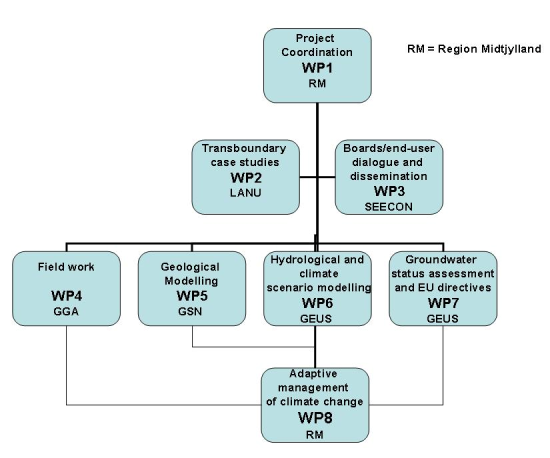[an error occurred while processing this directive]
 |
Adapting to climate change
Numerous Interreg IVB-proposals focus on the effects of flooding from surface run off and adaption to a new climate regime. This project has a focus on “flooding” underneath the surface where groundwater levels may rise above or close to the surface. This aspect is not at present elaborated very much either on EU or national levels. The results from this project will be used to predict how the future climate affects groundwater quantity and quality and hence societies in lowlands around the North Sea region and groundwater dependent ecosystems. There will be a need for new legislation or new standards for engineering of drainage, roads and buildings, and status assessments of the aquatic environment at regional, national and EU level, when climate and water and pollution fluxes change. The CLIWAT project will initiate important cooperation on transboundary evaluation of the effect of different climate scenarios in the North Sea region and prediction tools, maps and visualisations on a public internet site in order to facilitate cooperation and increase public awareness and understanding of the expected changes.
Fig. 3.1 Illustrates how different work packages leads toward guidelines.

Figure 3.1 Adaptive management of climate change. Guidelines are provided based on inputs from all WPs.
To promote integrated and adaptive management of climate change CLIWAT use the following approach:
- Illustration of results on various thematic maps and 3D visualisations
- Description of new conditions for waterworks and irrigation
- Implementation of CLIWAT results in spatial planning
- Dissemination of the results of CLIWAT
- Development of a transnational/regional management plan/handbook describing key issues of the project and recommendations
- Production of a handbook/report on findings of special interest to engineers
- Outline of needs for new legislation
- Establishment of an expert panel on climate change with contact persons from each involved country
|